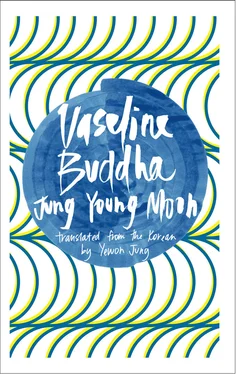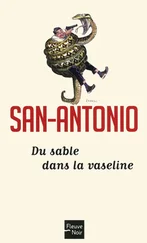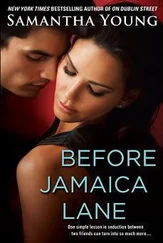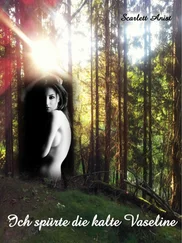Jung Young Moon - Vaseline Buddha
Здесь есть возможность читать онлайн «Jung Young Moon - Vaseline Buddha» весь текст электронной книги совершенно бесплатно (целиком полную версию без сокращений). В некоторых случаях можно слушать аудио, скачать через торрент в формате fb2 и присутствует краткое содержание. Год выпуска: 2016, Издательство: Deep Vellum Publishing, Жанр: Современная проза, на английском языке. Описание произведения, (предисловие) а так же отзывы посетителей доступны на портале библиотеки ЛибКат.
- Название:Vaseline Buddha
- Автор:
- Издательство:Deep Vellum Publishing
- Жанр:
- Год:2016
- ISBN:нет данных
- Рейтинг книги:3 / 5. Голосов: 1
-
Избранное:Добавить в избранное
- Отзывы:
-
Ваша оценка:
- 60
- 1
- 2
- 3
- 4
- 5
Vaseline Buddha: краткое содержание, описание и аннотация
Предлагаем к чтению аннотацию, описание, краткое содержание или предисловие (зависит от того, что написал сам автор книги «Vaseline Buddha»). Если вы не нашли необходимую информацию о книге — напишите в комментариях, мы постараемся отыскать её.
." — Pak Mingyu
A tragicomic odyssey told through free association scrubs the depths of the human psyche to achieve a higher level of consciousness equal to Zen meditation. The story opens when our sleepless narrator thwarts a would-be thief outside his moonlit window, then delves into his subconscious imagination to explore a variety of geographical and mental locations — real, unreal, surreal — to explore the very nature of reality.
Jung Young Moon
Vaseline Buddha — читать онлайн бесплатно полную книгу (весь текст) целиком
Ниже представлен текст книги, разбитый по страницам. Система сохранения места последней прочитанной страницы, позволяет с удобством читать онлайн бесплатно книгу «Vaseline Buddha», без необходимости каждый раз заново искать на чём Вы остановились. Поставьте закладку, и сможете в любой момент перейти на страницу, на которой закончили чтение.
Интервал:
Закладка:
Fortunately, his anger soon subsided when I bought him a pinwheel. For some reason I wanted to see the pinwheel, which spun quickly when he ran toward me, holding it in his hand, spin more quickly and frantically, so I told him to run faster, and watching him run frantically toward me several times, I thought that we could be good friends someday. But a thought I’d had earlier, that taking after me, he might follow in my ways, came to my mind again and worried me, but I concluded that he would live a life of his own. And when he grew older and life felt unbearable, he would blame me at times, but there was still time before that happened, and it wasn’t something inevitable, so it was possible that things wouldn’t turn out that way. I had trouble falling asleep that night, watching my son sleeping, and thinking about the first romantic relationship and sexual intercourse he would experience, and the many dreams he would have and then give up, and thinking that for now, he could just keep up with doing what he wanted to do, doing sit-ups, for instance.
Sometimes when we went to the mountain together, he would run around playing, but then sit down on a tree stump and become quietly lost in thought, and when I saw him sitting like that, I would recall my own childhood, when I spent countless hours quietly sitting like that.
It’s midwinter now. I’m sitting in the afternoon sun, drinking tea, in front of the table by the window on the second floor of the house I live in. The tea is ginger. The doctor told me that it would help with my dizziness. I do some things as the doctor instructs, but not others. The doctor has banned me from caffeine, but it seems boring somehow to do everything as the doctor ordered, so sometimes, I wake up in the morning and have three cups of strong coffee, and when I do, I grow severely dizzy. But being in that state brings me a strange pleasure. I’ve now come to think that there’s something in my dizziness that has to do with something fundamental in my being, and that dizziness may be something at the root of existence. And dizziness is addictive. It seems that there’s something of a religious experience in losing consciousness when dizziness reaches its extreme, or saturation, or freezing point of sorts, which is demonstrated in cases in which people lose consciousness with the help of charms or medicines in certain religious ceremonies. (Sometimes, people make a deliberate attempt to lose consciousness. People on an island in a tropical region dry up the roots of a plant of the pepper family called kava and mix it with water and drink it before performing a ceremony, and then walk on hot stones, and it is said that the drink makes you hallucinate a little and grow averse to light, and that the origin of the ceremony of walking on stones while your senses are paralyzed has to do with eels.)
In the meantime, I ended up going to an ear, nose, and throat clinic. The third floor office of the clinic specializing in symptoms of dizziness was full of people suffering from symptoms of dizziness. Some of them were sitting with their head against the back of the sofa, or leaning on the person next to them, who had come as their guardian. I wanted to put my head on someone’s shoulder, and felt a sense of fellowship with them, but I couldn’t tell if they felt the same way (perhaps people suffering from the same illness feel a stronger sense of fellowship than that felt among any others). An old man sitting to my right said to a young man sitting to my left, skipping over me, as if I weren’t sitting between them — they didn’t know each other — that he’d passed out a few days earlier and passed out twice the day before he came to the clinic, and he sounded as if he were bragging in a way, and I didn’t dare say a word in front of him about my own swooning.
I was able to see the doctor at last after waiting for over an hour. He asked me specifically how I was dizzy, but I had difficulty describing my dizziness specifically, so I wanted to tell him that it felt similar to an LSD trip but didn’t. I’d never experienced an LSD trip, and knew only through a book that there was something similar between LSD trips and my dizziness. The treatment involved making me dizzy through artificial means to find out the cause of the symptoms of dizziness. I had to put up with the ridiculous tests the doctor conducted on me, the process of which seemed so inadequate that I wondered if the cause could be determined through the tests.
After the checkup, the doctor showed me an anatomical chart of the ear, and told me that there was something wrong with the blood vessel connecting the vestibular organ in one of my ears to the brain, and I thought about my blood vessel that wasn’t functioning properly. And I looked at the three semicircular canals and the cochlea connected to the vestibular organ in the anatomical chart. I looked at them with great curiosity, as I always do when I see body organs in an anatomical chart, and they looked amazing and beautiful, like complex mechanisms. The doctor told me that unlike other organs in the body that were connected to each other through many blood vessels, which propelled other blood vessels into action when one of the blood vessels stopped functioning properly, there was only one blood vessel there, and that a surgery was almost impossible, and I realized that I would be living with some kind of a chronic disease, and felt that another problem had been added to the chronic problems I had.
After prescribing some medicine, the doctor banned me from cigarettes, alcohol, and coffee. All three were very difficult things for me to give up. And he taught me several physical movements that would be helpful in overcoming symptoms of dizziness. Most of them involved moving your head to make yourself dizzy on purpose, in order to develop tolerance to dizziness. Very much like an idiot, I shook my head obediently as instructed, from left to right, and up and down.
Feeling dizzy as a result, I left the doctor’s office and accidentally made my way to the opposite side of the entrance on the first floor of the clinic, and when I opened the door and went outside, there was a neglected plot of land with weeds growing on it, which looked like the site for a new building. I walked among the weeds, and as I always did when I made a visit to the hospital and learned the cause of my symptoms, I felt both happy and sad to have learned the cause for my dizziness.
And I found something white among the weeds that looked like the backbone of some kind of a vertebrate. It was possible that the thing, which had several joints and looked like the backbone of an animal, wasn’t a backbone. Nevertheless, looking at the thing, shining white in the sun, I felt a certain sadness, and felt tempted to make a story out of it, as I’d made a story about false teeth out of a teeth-marked apple sitting on a bench covered in snow in a royal palace in Budapest. But there are some things that are better left alone and kept from developing into a story, which I felt was the case for the thing. Still, I picked up the bone and kept it in a drawer.
For the past several days, in quite a vague state, I spent time making vague or elaborate plans, or making vague plans in an elaborate way, about things I would never do or end up doing. It occurred to me that I was spending each day without any plans as to how I would live in the days to come, with no confidence as to how I would face the very next day, but I thought that it shouldn’t be a problem.
Now I’m listening to a monotonic yet strange and beautiful music played on a shamisen. The album was something I bought when I went to Japan after going to the site of the Battle of Waterloo near Brussels, Belgium, where Napoleon’s army and the Prussian allies fought a fierce battle — until then, I didn’t know that Waterloo was in Belgium, and in the war memorial where there was a room filled with huge panorama pictures (panorama pictures, a forerunner of movies, touch you in a different way than movies, and I feel like a child when I look at them) depicting the war, there was a statement, proudly written, saying that the Belgians devoted themselves to taking care of the wounded on both sides during the Battle of Waterloo, as if that were all that the Belgians, who handed over their land, did — and then returned to Brussels and had a meal at a Japanese restaurant, during which I heard some shamisen music — I ate in the restaurant alone in the afternoon, and the music, monotonous yet intense, touched me in a mysterious way that left an unforgettable impression on me. Immersing myself in the music, I think that I could write a story with a circular structure in which I somehow extricate myself from the story in which I’m lost and then get lost again entering a story, where my life seems to be.
Читать дальшеИнтервал:
Закладка:
Похожие книги на «Vaseline Buddha»
Представляем Вашему вниманию похожие книги на «Vaseline Buddha» списком для выбора. Мы отобрали схожую по названию и смыслу литературу в надежде предоставить читателям больше вариантов отыскать новые, интересные, ещё непрочитанные произведения.
Обсуждение, отзывы о книге «Vaseline Buddha» и просто собственные мнения читателей. Оставьте ваши комментарии, напишите, что Вы думаете о произведении, его смысле или главных героях. Укажите что конкретно понравилось, а что нет, и почему Вы так считаете.












